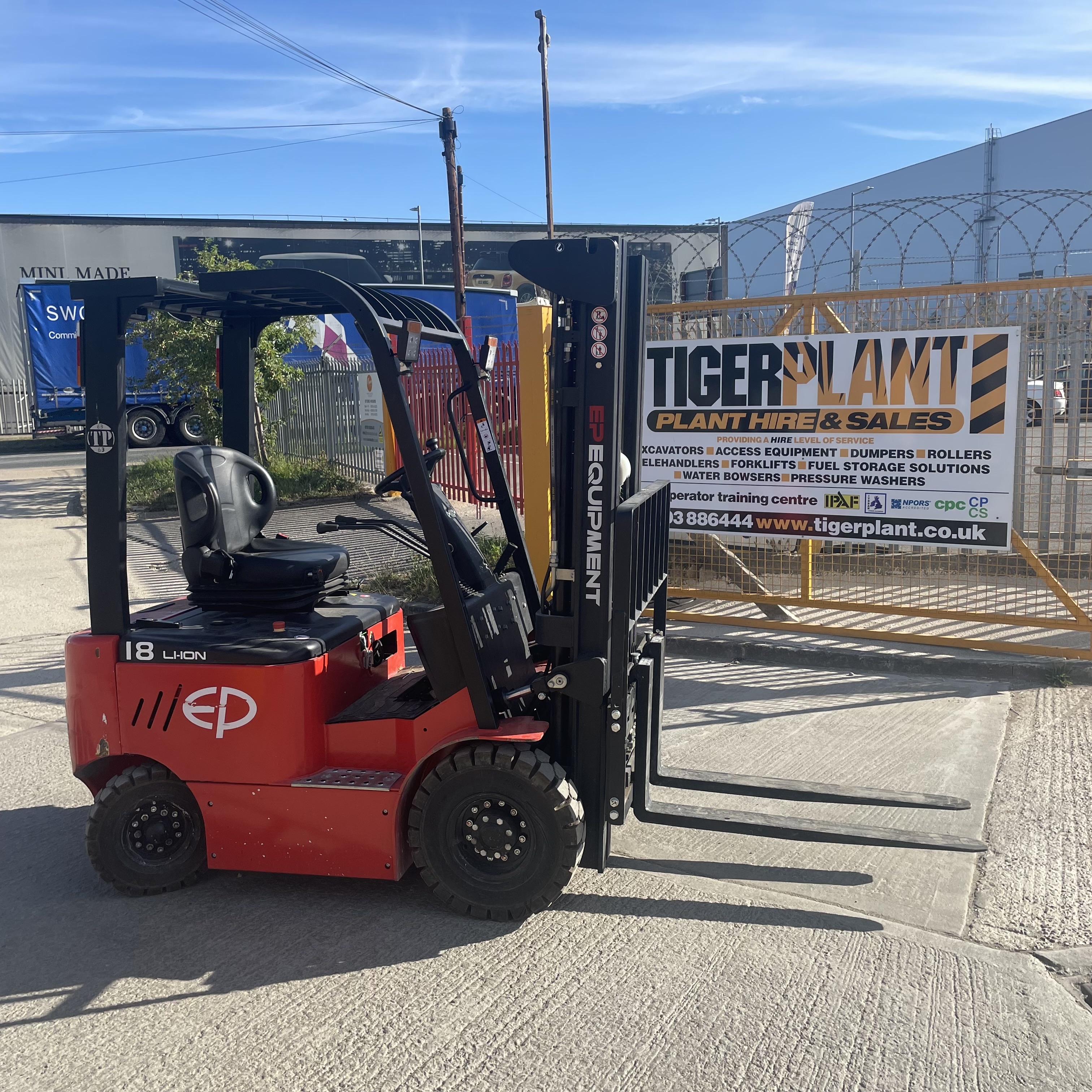Forklifts are standard fare in almost any building project. Traditionally powered by diesel, forklifts have evolved over the years to include electric models. This begs the question: which type of forklift is better for the job at hand?
Forklifts are essential equipment for any self-build project. Like any plant equipment, what constitutes the ‘right’ forklift will depend on the task it’s needed for. Both types have advantages and disadvantages, so in this blog, we’ll outline some points to consider when choosing between electric and diesel options.
Why Choose an Electric Forklift?
When first introduced, electric forklifts were mostly used for indoor jobs (like warehouse work) to mitigate diesel fumes in enclosed spaces. Since then, they’ve been steadily improved upon – much like we’ve seen with electric cars in recent years – and are now very capable of meeting the demands of an outdoor building site.
Below are some key advantages of electric forklifts:
-
Due to fewer moving parts, they tend to have longer lives than diesel forklifts
-
Streamlined motors mean they need less maintenance
-
A safer work environment: no emissions make them perfect for enclosed spaces
-
They produce less noise pollution due to near-silent operation
All that being said, there are a few caveats to be aware of:
-
More expensive to buy outright
-
Batteries take a long time to recharge, so forgetting to plug them in between uses can be costly
So, are they worth it?
Weighing up the pros and cons, electric forklifts are clearly a great choice if you’re looking for something more sustainable. As long as you’re vigilant about keeping it charged, they’re a great go-to.
You don’t need to worry about buying one outright, either; the high prices of electric models can be off-putting, so consider hiring one instead to avoid eating that cost.
Diesel Forklifts are Still a Strong Option
Despite the appeal of electric variants, diesel forklifts still have a lot going for them. Being the more traditional of the two, diesel forklifts have a tried-and-tested history and a lot of raw, rugged power behind them.
The advantages of diesel forklifts:
-
Strong and reliable when properly maintained
-
Extremely convenient – much easier to fuel up, so more ideal for longer jobs
-
Excellent heavy lifters for outside jobs
The disadvantages of diesel forklifts:
-
Very noisy when in operation
-
Not suitable for confined or enclosed spaces
-
They require more maintenance than electric forklifts
Weighing up the pros and cons
All things considered, diesel forklifts are excellent for outdoor jobs and extremely convenient to operate. Maintenance can be costly and time-consuming, though – but this is an issue that can be avoided when hiring a diesel forklift as opposed to buying outright.
For jobs that require more lifting power, telehandlers are also a strong option, and will remain so until battery technology makes diesel redundant.
Conclusion: Which Forklift is Better?
Weighing up the arguments for diesel and electric forklifts, both excel in certain areas while falling short in others.
For that reason, it’s clear that they’re each suited for specific situations:
-
Electric forklifts are excellent for any job in an enclosed space, or when you want a quieter, cleaner operation (as long as you don’t forget to recharge it!)
-
Diesel forklifts are classic heavy lifters that are perfect for traditional building sites. They’re convenient for day-to-day use but do cause more air and noise pollution.
Hire Your Forklift from Tiger Plant
Whether you’re looking for an electric forklift for a quick, clean job or a diesel forklift to meet the demands of a more rugged site, Tiger Plant has you covered.
We offer electric and diesel forklifts for hire in the South West of the UK as well as operators if you need one. Contact us today to find out more or get a free quote from our team.




